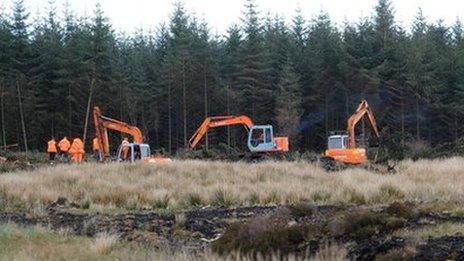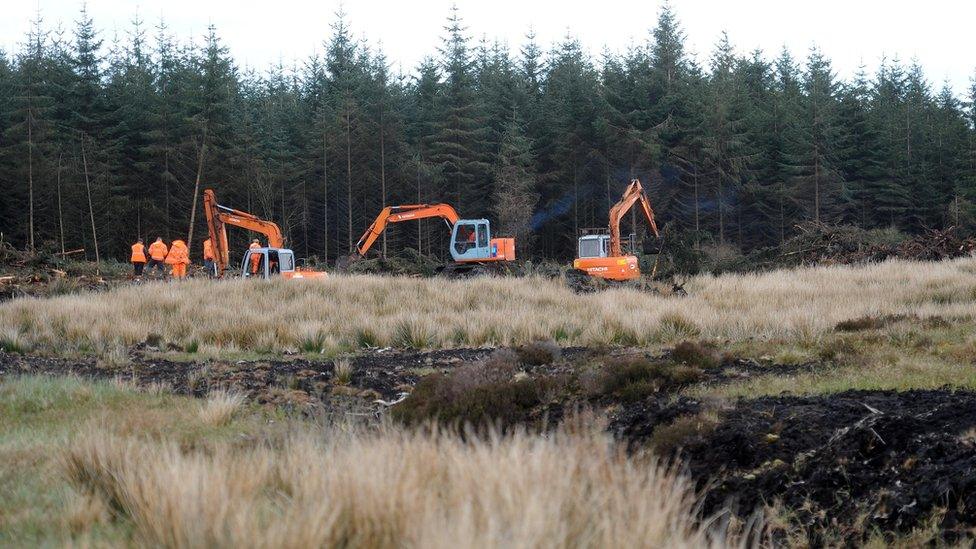Joe Lynskey: Search for Disappeared victim ends with nothing found
- Published
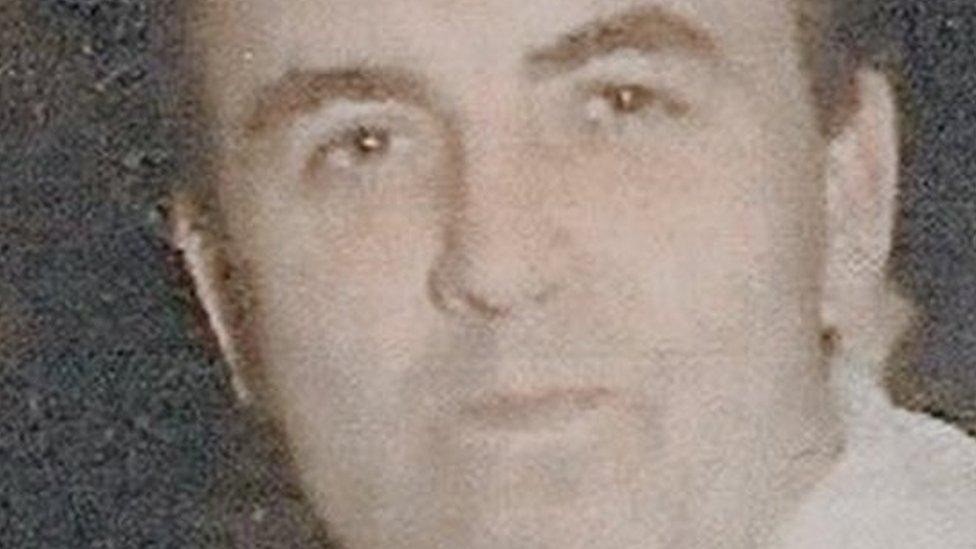
Joe Lynskey was a former Cistercian monk from west Belfast who disappeared in 1972
A search for the body of Joe Lynskey, who was abducted and murdered by the IRA 43 years ago, has ended with nothing being found.
The search of a 19-acre site at Coghalstown, County Meath, began almost a year ago.
Mr Lynskey, a former Cistercian monk who later joined the IRA, was abducted in west Belfast in August 1972.
His niece Maria Lynskey said she was "bitterly disappointed" that her uncle's remains had not been found.
"This year I had hope when before there was nothing and I'm grateful for that," she said.
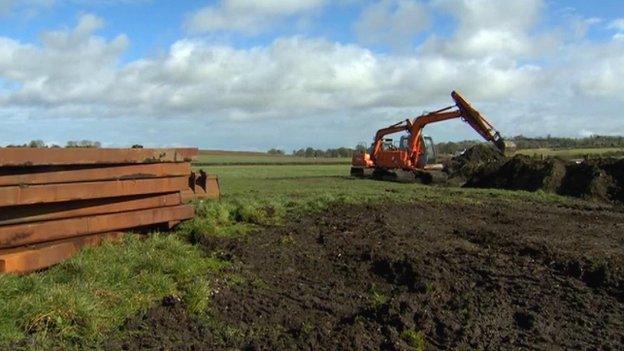
The search was carried out at Coghalstown, County Meath
Mr Lynskey became known as one of the so-called Disappeared; 16 people abducted and secretly buried by republicans in the 1970s and 1980s.
So far, the remains of 12 people have been recovered.
The searches for Mr Lynskey were carried out close to where the body of another IRA victim, Brendan Megraw, was found in October 2014.
During the search for Mr Lynskey, the remains were unexpectedly found of Kevin McKee and Seamus Wright, who also disappeared in 1972.
Ms Lynksey said her family had taken great comfort from that, and praised the work of the Independent Commission for the Location of Victims' Remains (ICLVR) during the search.
'More information'
The commission was established in 1999 to obtain information in strictest confidence that may lead to where the bodies are buried.
"I visited the site several times and saw how dedicated the search teams were and how hard they worked especially when the conditions were bad," she said.
"Of course I'm disappointed that Joe is not coming home to be laid to rest with his parents, but I know that the ICLVR did absolutely everything they could to find him."
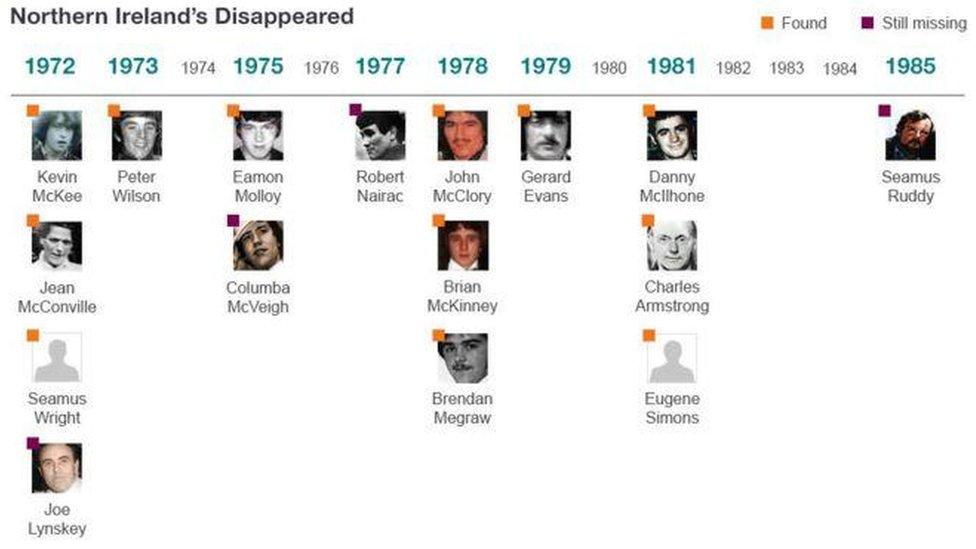
Geoff Knupfer, the ICLVR's lead forensic scientist and investigator, said his team shared Ms Lynskey's disappointment.
"When we brought the team of forensic archaeologists and contractors on to the site to start the invasive phase of the search in March, we had good reason to believe we were in the right place," he said.
"Like Maria we believe the information we were working from was given in good faith but clearly it was incomplete.
"We know that more information about the events of over 40 years ago is still out there.
"Once again I emphasise that all information is treated in the strictest confidence and that anyone who supplies it can do so in the certain knowledge that their identity will never be revealed to anyone else."
- Published11 March 2015
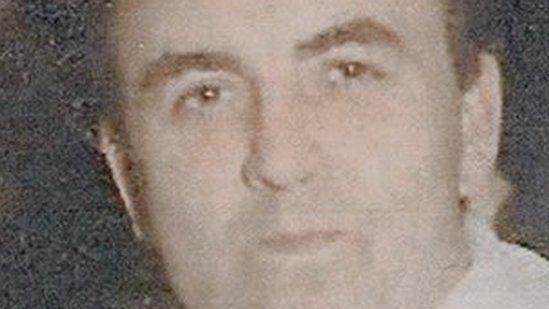
- Published1 December 2014
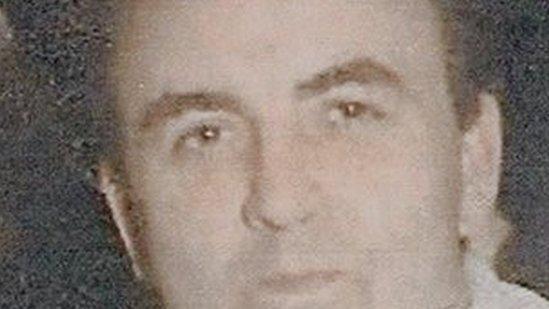
- Published6 November 2014
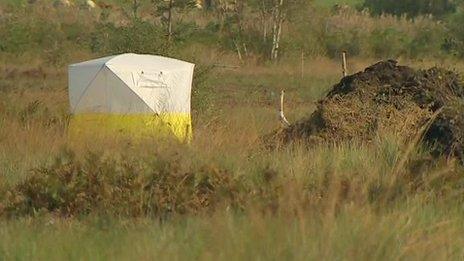
- Published3 October 2022
